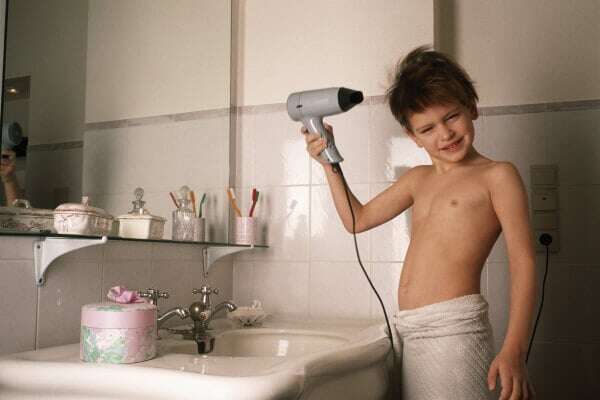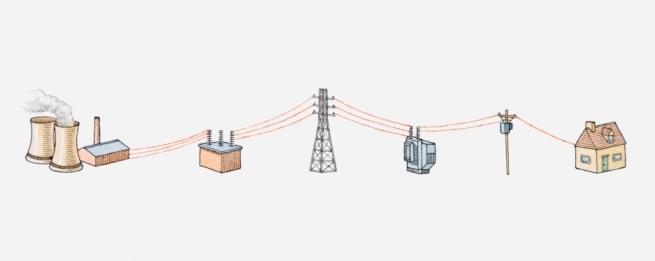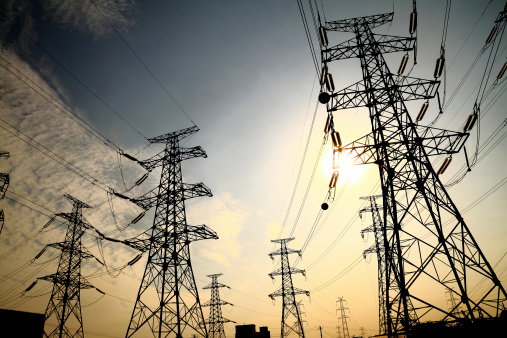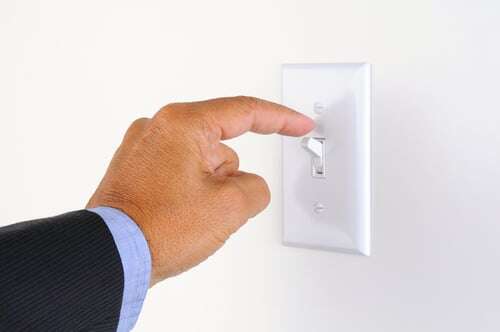 “Everyone” seems to know that the coupling of water and electricity creates a hazardous situation – spawning anything from a mild electrical shock to electrocution.
“Everyone” seems to know that the coupling of water and electricity creates a hazardous situation – spawning anything from a mild electrical shock to electrocution.
But at Experts In Your Home, we're not sure that “everyone” seems to know why, especially when it comes to exercising electrical safety in the bathroom. We would even go so far as to say that the bathroom is the most likely place for this coupling to occur, especially when you consider the number of water sources – faucets, a tub and a shower – that exist amid electrical outlets and light fixtures.
If you think that this is an understated way of saying that your bathroom is the most dangerous place in your home when it comes to electrical risks, we wouldn't disagree. It is even more dangerous than the kitchen.
So before we continue our room-by-room primer on electrical safety, it's vital that you keep lesson No. 1 top of mind: water and electricity should stay far apart in your bathroom, even if you have ground fault circuit interrupters.
Water and Electricity is a Dangerous Combination
GFCIs are designed to cut off the flow of electricity in the presence of water, which is why they're such valuable inclusions in every bathroom. Sensing danger and responding to it is the core function of GFCIs, and this function could save your life.
However, GFCIs aren't infalible; they can become damaged or simply wear out. And this is why Experts In Your Home has been urging readers to test their GFCIs every month – room by room and in every room. Like smoke detectors, they must be in good condition to respond to an emergency.
Moreover, it's not wise to become lackadaisical about electricity and water – ever – and here's why: When it's dry, your skin is more resistant to electrical current than you may realize, especially if it's thick, calloused and dry.
Water changes the equation entirely: water reduces your body's natural resistance to water; total immersion eliminates it. This helps explain why accidents in which an appliance falls into a full bathtub while someone is bathing almost always results in electrocution.
Now that “everyone” better understands the relationship between water and electricity, extend this understanding to other electrical safety tips in the bathroom.
Electrical Safey in the Bathroom:
- Be proactive about outlets or light switches that feel warm to the touch, frequent blown fuses or flickering lights. All three are indications of wiring problems, which should be repaired promptly by a licensed electrician.
- Check the cords of all plug-in appliances, including blow dryers and curling irons. The cords should be devoid of cracks, dings and fraying – all of which could pose a fire hazard.
- Keep the appliances away from the sink, which can be tricky to do if you're tight on counter space and have only one outlet. In this case, consider calling a licensed electrician to install another outlet for you.
- Turn off and unplug appliances when you're done using them. If you take the half-measure of turning them off but leaving them plugged in, they still pose a shock hazard, especially if they come into contact with water (such as if they tumble into a sink full of water).
- Inspect your lighting choices. Pendant (or hanging) lights may be more attractive to you, but they're not as safe as enclosed ceiling lights in the bathroom. If you must have hanging lights, make sure they're out of the reach of someone using, or is still wet from using, the tub or shower.
- Avoid bringing new plug-in appliances into the bathroom, especially radios and tape players. Each new plug-in appliance increases your chances of electrical shock – or worse.
We hope you use these electrical safety tips as a checklist for your bathroom to make sure your home and family are as safe as possible. Next time you're looking for a local electrician in Chico, Paradise or surrounding areas consider contacting Experts In Your Home.
To learn more electrical safety tips for your home download our free eBook below:








